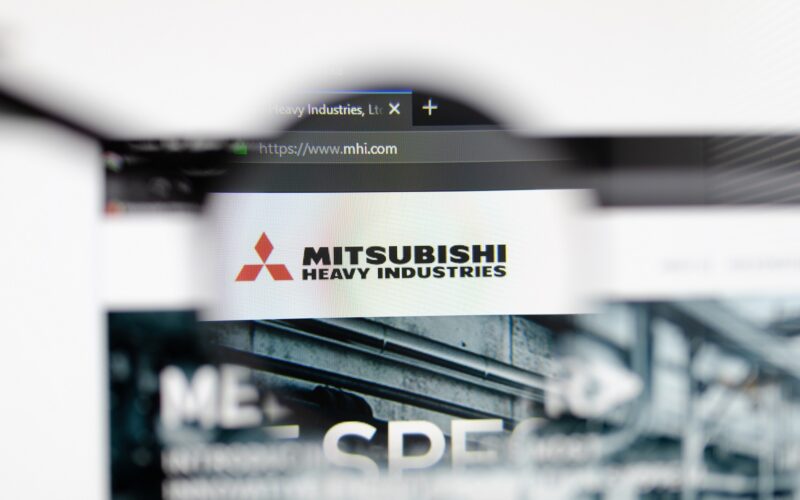Following the official confirmation that Mitsubishi Heavy Industries (MHI) would be terminating its SpaceJet program, the company’s president, Chief Executive Officer (CEO), and Chief Strategy Officer (CSO), Seiji Izumisawa has shed light on the decision.
Initial reports indicated that Mitsubishi would officially cancel the program on February 6, 2023. The same day, the Japanese conglomerate issued a notice stating that it was still “considering a variety of possibilities regarding this matter” and that it will “release any information requiring disclosure promptly in the event that any decision has been made”.
On February 7, 2023, MHI officially announced that it will discontinue the development of the SpaceJet program, which has been frozen since October 2020. Pouring billions of dollars into the program, the Japanese company anticipated being able to restart commercial aircraft production in Japan. It would have been the first commercial aircraft program in the country since the NAMC YS-11, a 64-passenger turboprop built between 1962 and 1974.
While hopes were initially high, the 2008 announcement of the SpaceJet, which was then known as the Regional Jet (MRJ), was followed by numerous delays and order cancelations. The project ended without Mitsubishi ever obtaining a type certificate (TC) for the SpaceJet and without Japan having a domestic commercial aircraft program.
Mitsubishi were “naive”
The financial pain incurred by the SpaceJet program now appears to be coming to an end. While announcing the company’s Q3 FY2022 financial results, Izumisawa explained the decision to close the curtain on the Japanese aircraft.
“This decision will have no material impact on MHI’s financial results, both consolidated and non-consolidated,” the Japanese company noted in an announcement on February 7, 2023. Mitsubishi spent more than ¥1 trillion ($7.5 billion) to develop and attempt to certify the regional aircraft, which had two variants: a 76-seater and a 90-odd seater.
“We were unable to find the business feasibility to resume development,” Izumisawa said during the company’s earnings call with investors on February 7, 2023. According to the executive, with electrification coming soon to the aviation industry, the conglomerate saw that design changes were necessary to the two variants.
The company will “leverage knowledge and experience acquired through SpaceJet program to continue contributing to the Japanese aviation industry, which aspires to return OEM aircraft manufacture to the country,” the company noted in a slide included in Mitsubishi’s Q3 FY2022 financial report about the cancelation of the development of the regional jet. Furthermore, the conglomerate learned two lessons. Firstly, that it had an “insufficient initial understanding of highly complex type certification process for commercial aircraft”, and that it did not have enough “resources to continue long-term development”.
Izumisawa also pointed out that Mitsubishi “lacked understanding of the advanced type certification process for commercial aircraft.” Personnel who worked with the SpaceJet will be transferred to work in the company’s defense unit, helping it develop the F-X fighter jet.
“In the early stages, we could not fully predict the scale and period of development, and to be honest, we were naive. We were not able to secure resources,” added Izumisawa.
SpaceJet plagued by delays
The Mitsubishi Regional Jet, which was renamed the SpaceJet in June 2019, has been plagued by multiple delays. Initially, it was supposed to be delivered to customers in 2013, with the date being pushed further and further back.
In October 2020, Mitsubishi paused the development of the program, focusing only on obtaining its Type Certificate (TC) going forward. The company continued to reduce the scope of operations, including the closure of its United States testing facility in Moses Lake, Washington, US, in May 2020.
But Mitsubishi was serious with its ambitions to develop the SpaceJet. It acquired the CRJ program from Bombardier for $550 million, finalizing that agreement in June 2020, buying not only the name but also the maintenance, engineering, airworthiness certification support, refurbishment, asset management, marketing, and sales activities for the CRJ. As of now, the Japanese business plans to continue working with the CRJ program and provide support to airlines as an Original Equipment Manufacturer (OEM).
Delays also impaired “the business viability of the project,” Izumisawa noted, continuing that “one of the most important things is to carry out development properly.”
For Mitsubishi, it was also difficult to “obtain understanding and necessary cooperation from global partners”, and to choose the direction of the program. The fact that scope clauses were not relaxed in the United States “resulted in M90 not meeting North American RJ market needs,” the company said.
Additionally, pilot shortages and the requirement for additional funding to obtain a TC contributed to the fact that the program was not feasible in the current market environment.

